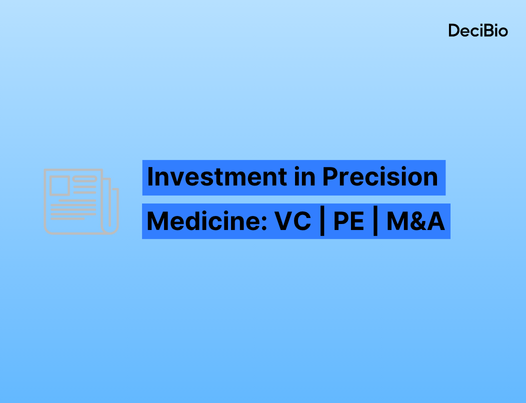Highlights & Summary
The final quarter of 2022 had exciting developments, from new releases from the FDA and Federal Trade Commission to big partnerships from Mayo Clinic and Google Cloud to novel product launches, there's much to cover. In this upcoming year, we will continue bringing you the most relevant snippets in digital health.
Overarching Industry Updates
1 | FDA releases draft guidance for Breakthrough Devices Program aimed at health inequities
AI / Imaging
1 | U.S. FDA clears MedCognetics’ AI-enabled breast cancer screening software
3 | Mayo Clinic Accelerates in Cardiovascular Pipeline [secondary source]
Disease Management / Digital Therapeutics
2 | ChroniSense Medical receives FDA 510(k) Approval for Remote Patient Monitoring Wearable
3 | Dexcom Finally Ties up Long-awaited G7 Diabetes Sensor Clearance after FDA Resubmission
4 | ITC: Apple Watches Violate AliveCor Patents but No Import Ban Yet
Informatics / Healthcare IT Solutions
2 | Webtools and Green Cross Health partner to deliver fully integrated ecosystem
4 | SmartFuture unveils plug-and-play RPM software kit
Overarching Industry Updates
1 | FDA releases draft guidance for Breakthrough Devices Program aimed at health inequities
In October, the FDA released new draft guidance for its Breakthrough Devices Program specifically in regard to health inequities. The updates include how the program applies to medical devices in groups facing health disparities, including race, gender, ethnicity, and access to care. Of particular note, the draft addended a section to the designation review process, clarifying that the FDA will not disclose existence or decision of a Breakthrough Device Designation request unless it receives market approval or if the company chooses to publicly disclose it.
In December, the Federal Trade Commission released a mobile health app interactive tool meant to assist developers in considering which federal laws their digital health apps must comply with. The tool asks developers questions such as “Do consumers need a prescription to access your app?” to help navigate a field of federal regulations, including HIPAA, Federal Food, Drug and Cosmetic Act, 21st Century Cures Act's health IT and information blocking provisions and ONC's Cures Act Final Rule, among others. This will be a powerful tool for designing and planning future digital health applications.
AI / Imaging
1 | U.S. FDA clears MedCognetics’ AI-enabled breast cancer screening software
MedCognetics, a UTSW spinout, recently received FDA 510(k) approval for their breast cancer screening software: QmTRIAGE. The software, trained on datasets provided by UTSW and UTD, analyzes full-field digital mammography screenings and raises any fields with suspected abnormalities for radiologist review.
Avenda Health, a UCLA spinout, recently scored FDA 510(k) approval for their prostate cancer care software: iQuest. This software tool allows physicians to understand where in the prostate the cancer is localized, segment MRI features, and evaluate lesions to plan ahead for future surgeries.
3 | Mayo Clinic Accelerates in Cardiovascular Pipeline
The Mayo Clinic, through its partnerships, had a very busy Q4 in the cardiac space. Their partner, Ultromics, received FDA 510(k) clearance for a machine learning-based decision-support system used to help detect heart failure with preserved ejection fraction, a difficult diagnosis to make otherwise. By removing barriers to diagnosis, Ultromics hopes to improve clinical outcomes. Meanwhile, a Mayo Clinic venture, Anumana, partnered with Pfizer for the development of an cardiac amyloidosis early detection algorithm.
AEYA health uses images from each eye, taken by retinal camera Topcon NW-400, to detect signs of more-than-mild diabetic retinopathy. This screening technology is intended to exceed the efficacy of a human expert, helping to monitor complications that can lead to serious-vision problems. The system has received FDA 510(k) clearance for this AI screening tool, and is working towards future goals of clearance for a portable camera and for screening glaucomatous optic neuropathy.
Disease Management / Digital Therapeutics
Sinaptica Therapeutics receives FDA Breakthrough Device Designation for SinaptiStim, a system to treat Alzheimer’s disease with neurostimulation and brain wave monitoring technologies. The device was evaluated in a randomized, sham-controlled clinical trial, with a pivotal trias Ciolate AliveCor Patents l initiating in 2023. The therapy combines artificial intelligence and brain modeling to provide a precision-delivered approach, utilizing decades of scientific and clinical research.
2 | ChroniSense Medical receives FDA 510(k) Approval for Remote Patient Monitoring Wearable
ChroniSense Medical, an Israeli wearable health tech company, recently received FDA 510(k) approval for their Polso wearable. The Polso wearable allows clinicians to monitor several chronic care patients’ vitals such as blood oxygen saturation (SpO2), pulse rate and respiration rate through their proprietary platform.
3 | Dexcom Finally Ties up Long-awaited G7 Diabetes Sensor Clearance after FDA Resubmission
Dexcom’s G7, a wearable glucose monitor for type 1 and type 2 diabetes, has received FDA clearance. The system is 60% smaller than the preceding version, has improved accuracy, and has a redesigned and easier to use mobile app. The sensor adheres to the back of the upper arm and sends glucose readings every 5 minutes to either a connected smartphone or Dexcom received. Dexcom is beginning stateside rollout of the product, and awaiting a final Medicare reimbursement decision.
4 | ITC: Apple Watches Violate AliveCor Patents but No Import Ban Yet
Apple watches with ECG functionality have been determined by the U.S. International Trade Commission (ITC) to violate two patents from AliveCor. Apple is petitioning to suspend or delay the import ban. The two companies have been involved in disputes for years over patented wearable features. AliveCor has also filed an antitrust suit against Apple. Apple representatives firmly disagree with ITC’s decision and are pushing back. The disputes bring to attention the dynamics of intellectual property in the digital health space as well as the fierce rivalry between companies.
Informatics / Healthcare IT Solutions
GoodRX, a company focused on drug-cost transparency, has announced a provider platform enabling the search of medication-cost information. The platform, Provider Mode, is designed to be used during patient appointments and allows for the input of location, dosing and quantity. Provider Mode allows for drug cost comparisons, coupon access and patient savings programs.
2 | Webtools and Green Cross Health partner to deliver fully integrated ecosystem
Green Cross Health, a New Zealand primary care provider, has launched a new consumer health app. The Doctors app allows users to connect with their physicians, provides access to their health summary, enables appointment bookings and more. The app is powered by the connected care platform for Webtools Health, Centrik. This enables the app to integrate across Green Cross’s health network and adheres to data standards such as FHIR. This app is part of a larger trend of Centrik connecting patients and integrating across health systems in Oceania.
Health insurer Highmark Health, League, a healthcare digital tool building platform, and Google Cloud are partnering to build a digital health platform for those insured with Highmark. The portal will allow patients to pay bills, evaluate costs and receive virtual care. This platform is part of Highmark and Google’s 2020 announcement of their six-year collaboration to develop the Living Health Dynamic Platform, aiming to minimize fragmentation of patients’ healthcare experiences and lessen administrative burden for providers.
4 | SmartFuture unveils plug-and-play RPM software kit
SmartFuture, a Singaporean health tech company, launched a software development kit for RPM (remote patient monitoring). The kit will allow the integration of RPM functionality into existing apps and web portals. The kit can connect with more than 400 medical devices from ~40 brands, including devices that capture blood glucose levels, body scales, blood pressure monitors, oximeters, ECG monitors and other vitals. The kit can also integrate with several EMR platforms such as Cerner, Allscripts, and Epic. The kit marks a move to lessen the complexity for providers and patients alike when navigating digital health tools.
Google Cloud and Rite Aid are embarking on a multiyear partnership wherein Google will provide Rite Aid with technological insight to make its pharmacies more personalized and data-driven. Rite Aid will move their applications to Google’s Anthos, a platform providing machine learning analytics, collaboration software, data security and app building capabilities. Rite Aid is also moving its vaccine scheduling tool, customer messaging infrastructure and digital engagement platform to Google Cloud which will provide ~2,350 pharmacies with cloud computing capabilities.

.png)





.png)

.png)


